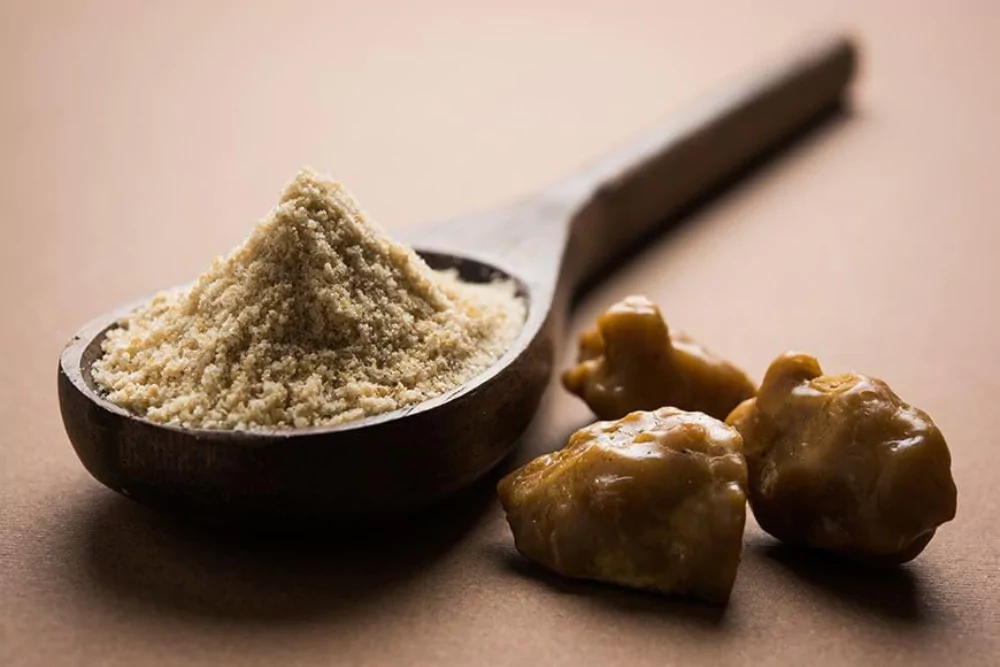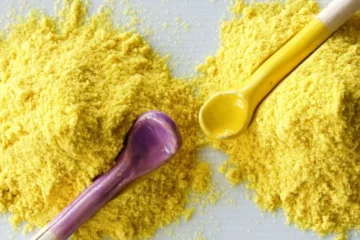Modern research highlights Hing’s antimicrobial, anti-inflammatory, antispasmodic, and digestive properties. These Hing Health Benefits make it a valuable natural aid for digestion, bloating, and even respiratory relief, supported by both traditional use and growing scientific evidence.
What does modern research say about Hing’s health benefits — are there any proven effects?
Short Answer: Yes, research supports Hing Health Benefits such as improved digestion, anti-inflammatory effects, and antimicrobial activity, with studies confirming its role as a natural remedy.
Long Answer:
- Antimicrobial Properties: Studies show that hing inhibits bacterial and fungal growth, helping in gut balance and infection control.
- Anti-inflammatory Effects: Scientific evidence demonstrates that hing’s compounds reduce swelling, making it effective in conditions like arthritis.
- Digestive Benefits: Research confirms hing stimulates digestive enzymes, reducing gas and bloating naturally.
- Antispasmodic Action: Hing relaxes muscles, easing abdominal cramps and respiratory spasms.
- Respiratory Relief: Studies note hing’s bronchodilator properties, helping in asthma and chronic bronchitis.
Can Hing be used as a natural alternative to common medicines for digestion, bloating, or pain?
Short Answer: Hing can complement digestion and pain relief naturally, but it should not fully replace prescribed medicines. It works best as a preventive or supportive remedy.
Long Answer:
- For Digestion: Hing helps relieve bloating and indigestion by stimulating gastric enzyme activity.
- For Bloating: Its antispasmodic effect reduces intestinal cramping, making it an excellent natural option.
- For Pain: Hing’s anti-inflammatory compounds provide mild pain relief, especially in abdominal discomfort and joint issues.
- Complementary Role: While helpful, hing should be seen as a support, not a substitute, for modern medicine.
- Preventive Use: Regular but moderate intake can help prevent chronic digestive problems naturally.
Are there any clinical trials or scientific reviews that support Hing’s use in treating specific conditions?
Short Answer: Yes, clinical trials and pharmacological reviews have supported Hing Health Benefits in digestive health, respiratory disorders, and inflammation control.
Long Answer:
| Condition | Study Findings | Source |
|---|---|---|
| Digestive Disorders | Hing extract shown to reduce bloating and IBS symptoms. | Journal of Ethnopharmacology |
| Asthma & Respiratory Issues | Bronchodilator properties observed in patients with chronic asthma. | Phytomedicine Journal |
| Arthritis | Anti-inflammatory effects reduced joint pain and swelling in trials. | International Journal of Molecular Sciences |
| Antimicrobial Resistance | Promising results against bacterial strains resistant to antibiotics. | Frontiers in Microbiology |
How is Hing used in modern formulations — capsules, extracts, or topical applications?
Short Answer: Hing is now available as capsules, extracts, powders, and topical applications, making its traditional benefits more accessible in modern medicine.
Long Answer:
- Capsules: Easy-to-consume form for those seeking daily digestive or anti-inflammatory support.
- Liquid Extracts: Concentrated versions for therapeutic use in both internal and external applications.
- Powdered Form: Used in functional foods, teas, or supplements for digestive health.
- Topical Creams/Ointments: Applied for joint pain or inflammation relief.
- Blended Formulations: Combined with probiotics or herbs for enhanced efficacy in modern supplements.
Is Hing safe for regular use, and are there any side effects or interactions with medications?
Short Answer: Hing is generally safe in moderate amounts, but excessive intake may cause headaches, nausea, or blood pressure fluctuations. It may also interact with anticoagulants and antihypertensive drugs.
Long Answer:
- Safe Dosage: 200–500 mg per day is considered safe for most adults.
- Possible Side Effects: High doses may cause dizziness, nausea, or excessive gas.
- Pregnancy Concerns: Hing should be avoided in large quantities during pregnancy due to uterine stimulation risks.
- Medication Interactions: May enhance the effect of blood thinners, anticoagulants, and antihypertensive drugs.
- Quality Matters: Always choose pure and certified hing supplements to avoid contamination risks.
Conclusion
Hing Health Benefits are now backed by modern research, confirming its antimicrobial, digestive, and anti-inflammatory roles. While hing cannot fully replace prescribed medicines, its use as a natural complement in capsules, extracts, and functional foods makes it valuable in today’s health care. With safe dosage and proper use, hing bridges traditional wisdom with modern science.





